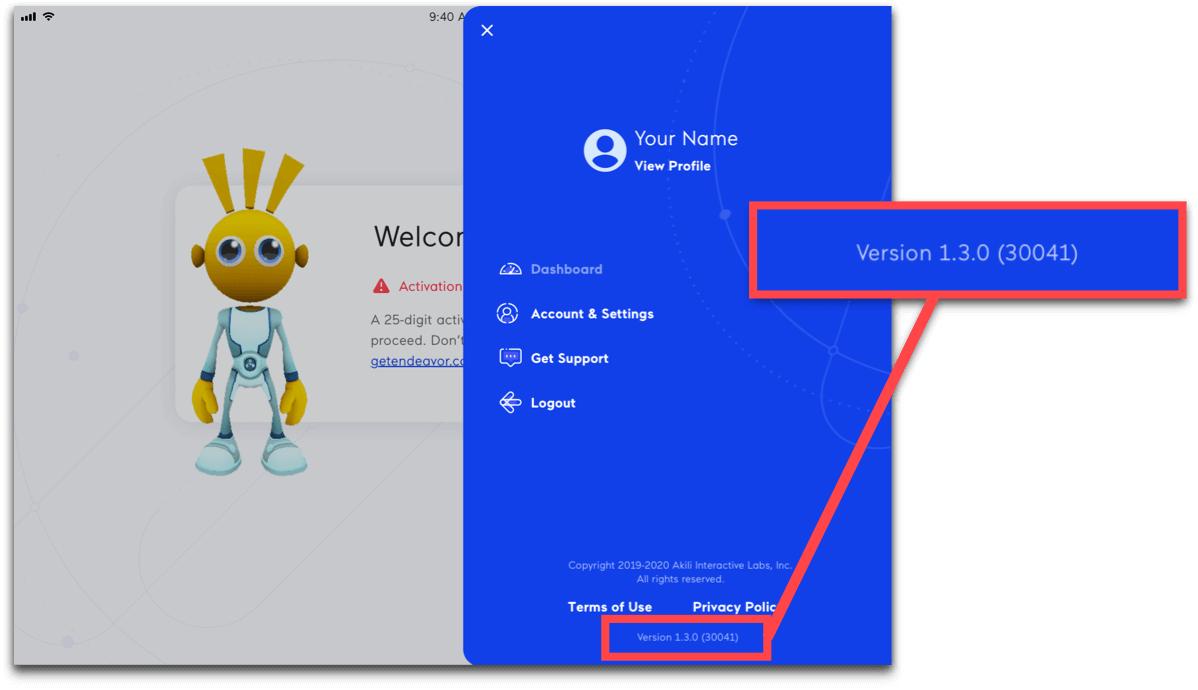The Research

EndeavorRx is FDA-authorized, supported by 5 clinical studies involving over 600 children with ADHD. In our randomized, controlled clinical study¹, EndeavorRx improved objective attention in children with ADHD ages 8-12. Patients played for ~25 minutes per day, 5 days per week, for 4 weeks – and a more recent trial demonstrated that a second month of treatment can lead to increased benefits.
By The Numbers
68% of parents reported improvements in ADHD-related impairments after two months of treatment.²
73% of children reported an improvement in their attention.¹
0% There were no serious adverse events seen in any clinical trials of EndeavorRx.³
¹ Kollins et al, Lancet Digital Health 2020. Data from a “Yes-No” Exit Survey.
² STARS-ADHD-Adjunctive: Kollins et al, npj digital medicine, 2021.
³ EndeavorRx Instructions for Use


Need help talking to your doctor about EndeavorRx?
Use this resource to help start a conversation with your child’s healthcare professional.
EndeavorRx:
Indications, Safety and Cautions
Indications:
EndeavorRx is a digital therapeutic indicated to improve attention function as measured by computer-based testing in children ages 8-17 years old with primarily inattentive or combined-type ADHD, who have a demonstrated attention issue. Patients who engage with EndeavorRx demonstrate improvements in a digitally assessed measure, Test of Variables of Attention (TOVA®), of sustained and selective attention and may not display benefits in typical behavioral symptoms, such as hyperactivity. EndeavorRx should be considered for use as part of a therapeutic program that may include clinician-directed therapy, medication, and/or educational programs, which further address symptoms of the disorder.
Safety:
No serious adverse events were reported. Of 342 participants who received AKL-T01 in the two clinical trials supporting EndeavorRx authorization for age ranges 8-17, 17 participants (4.97%) experienced treatment-related adverse events (TE-ADE) (possible, probable, likely). TE-ADEs reported at greater than 1% across the studies include: frustration tolerance decreased (2.34%) and headache (1.17%). Other adverse events occurred less than 1% and included dizziness, emotional disorder, nausea, and aggression. All adverse events were transient and no events led to device discontinuation. Across other studies in children and adolescents with ADHD, rates of adverse events were similarly low (<10%) and no Serious Adverse Events have been reported. All reported adverse events across all clinical trials resolved at the end of treatment. Users should consider the totality of evidence presented along with their health care provider when considering incorporating AKL-T01 into their treatment plan.
Cautions:
Rx only: Federal law restricts this device to sale by or on the order of a licensed health care provider. EndeavorRx should only be used by the patient for whom the prescription was written. For medical questions, please contact your child’s healthcare provider. If you are experiencing a medical emergency, please dial 911. EndeavorRx is not intended to be used as a stand-alone therapeutic and is not a substitution for your child’s medication.
If your child experiences frustration, emotional reaction, dizziness, nausea, headache, eye-strain, or joint pain while playing EndeavorRx pause the treatment. If the problem persists contact your child’s healthcare provider. If your child experiences a seizure stop the treatment and contact your child’s healthcare provider.
EndeavorRx may not be appropriate for patients with photo-sensitive epilepsy, color blindness, or physical limitations that restrict use of a mobile device; parents should consult with their child’s healthcare provider.
Please follow all of your mobile device manufacturer’s instructions for the safe operation of your mobile device. For example, this may include appropriate volume settings, proper battery charging, not operating the device if damaged, and proper device disposal. Contact your mobile device manufacturer for any questions or concerns that pertain to your device.










